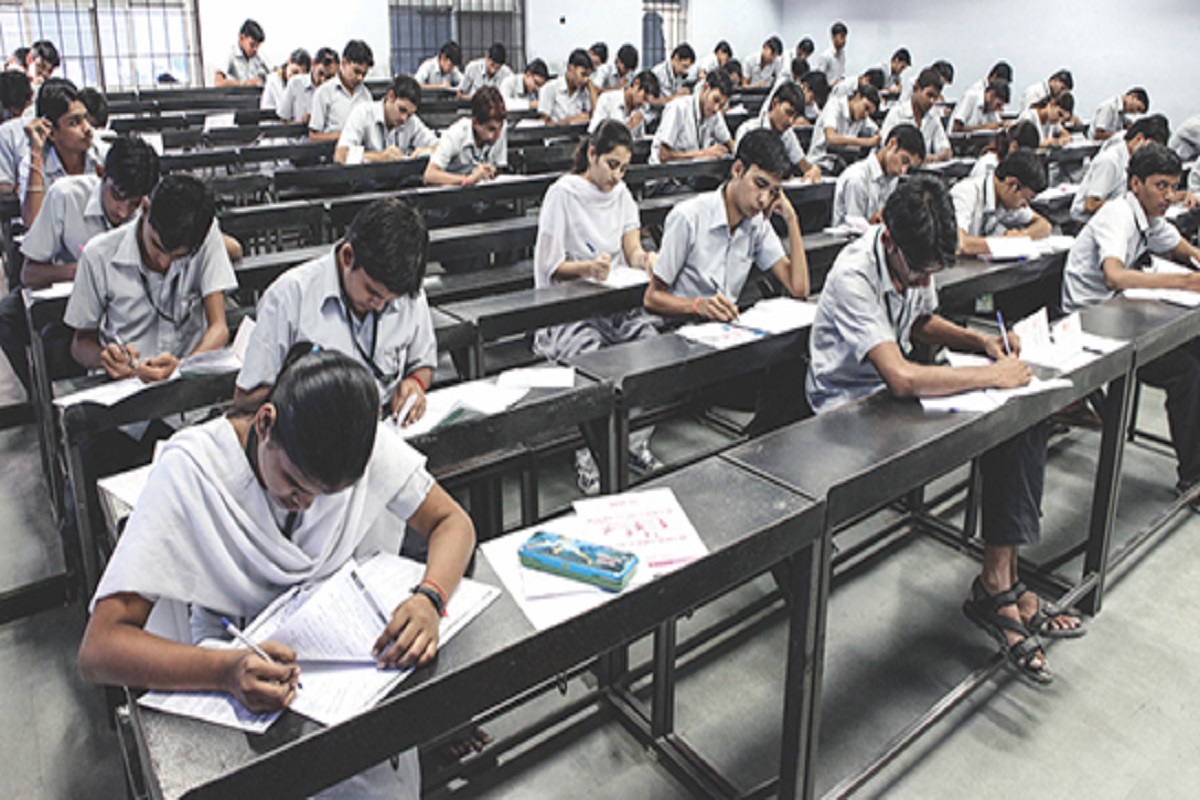Greenfield airport to be developed in Kota, Aerocity in Jaipur
As per the decision, new hotels, restaurants and other related infrastructure projects would be developed near Jaipur airport.

(Representational Image/Allen Website)
“Go, make a name for yourself” 16-year-old Rahul Kaushik from Behror was told this by his lawyer father when he was leaving for Kota, India’s competitive student town in Rajasthan. Rahul, who went to Kota along with his sister, is now pursuing MBBS from Jodhpur. His sister Manashvi also cleared NEET and secured a seat for herself in a medical college in Rajasthan’s Sikar. They won the race.
However, Maharashtra’s Avishkar Sambhaji Kasle and Bihar’s Adarsh Raj could not handle the pressure of the intense grind of coaching institutions and the rat race to finish on top. They became the latest casualty of Kota’s high-pressure test-prep business. While Kasle jumped off the sixth floor of his coaching institute, Raj hanged himself by the ceiling fan in his hostel room.
Advertisement
So far, 23 students aspiring to become engineers and doctors have committed suicide in 2023 alone. The number is even higher than the previous year when 15 students killed themselves. According to Rajasthan police data, 18 students died by suicide in 2019, 20 in 2018, seven in 2017, 17 in 2016, and 18 in 2015. No student suicide was reported in Kota in 2020 and 2021 for the coaching institutes were shut due to the coronavirus pandemic.
Advertisement
Why so many students are dying in Kota?
Rahul highlighted a very crucial point that coaching institutes in Kota put a lot of pressure on students. This pressure may not be intentional, but takes a toll on students’ mind, who live alone and far from their homes.
“They take a lot of tests, with one every two to three weeks to assess the syllabus covered during that period. Initially, the syllabus is not too much but with time it piles up and becomes tough for students,” Rahul said.
Now someone may argue that good institutions are supposed to work this way only – teach and then check if students have learned or not.
To this, Rahul replied, “But then they publish the results on the notice board for everyone to see. There is a separate list of the top 10, 100, and those who have not cleared the test. This is where the problem lies. This is what creates pressure in students’ minds.”
“Also, coaching institutions in Kota cover the syllabus in a very fast manner and if someone is left behind, it becomes very hard to catch up.
“And then there are students who are under immense pressure to perform well because their families are not so well off and have taken out debt from banks or relatives to pay for their studies,” he added.
Where does the problem lie?
Vinay Sharma, a chemistry teacher, requesting anonymity in one of the leading coaching institutes of Kota differs.
“Our institutions make sure we provide the best of our teaching services to each and every student coming to us. But a student must know that he will have to study for there is national level competition and it is not going to be easy and there will be pressure,” he said.
He also informed us that the practice of rank generation after each test has long been done away with and most institutes have set up an additional help desk to provide revision on topics students have missed due to any reasons.
“See. There is no denying the pressure. The expectations of parents add to that pressure. And then some also get involved with additional things – love affairs, friends, etc. But we have mentorship programs, and psychological counsellors to help students with issues they are facing. Each life is precious, but if they won’t tell, nothing can be done,” he added.
What is the solution?
Mahesh Joshi, a minister in the Ashok Gehlot-led Rajasthan government suggested an extreme step of shutting down the coaching system. But this can’t be the solution.
The government has ordered the coaching institutions to stop the tests for the next two months. A committee has also been formed to suggest preventive measures. In the first meeting of the committee headed by Bhawani Singh Detha, coaching institutes have been asked to organise fun activities and provide motivational content to students through their online portals.
The committee has also suggested to reduce the syllabus. Coaching institutions have also been directed to send students who perform poorly in tests and remain absent from classes to counsellors.
The government, the coaching institutions, or the parents alone can’t do everything to stop students from committing suicide. Efforts are needed on three fronts – families will have to understand the potential of every child is different, therefore, it is not correct to pressure their wards into becoming something they don’t want.
The coaching institutions need to streamline their functioning and do away from practices that put unnecessary pressure on students’ minds. The government needs to ensure all the guidelines are followed by these institutions and support is available round the clock given every life is precious.
Advertisement